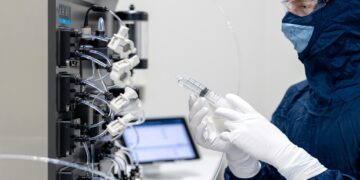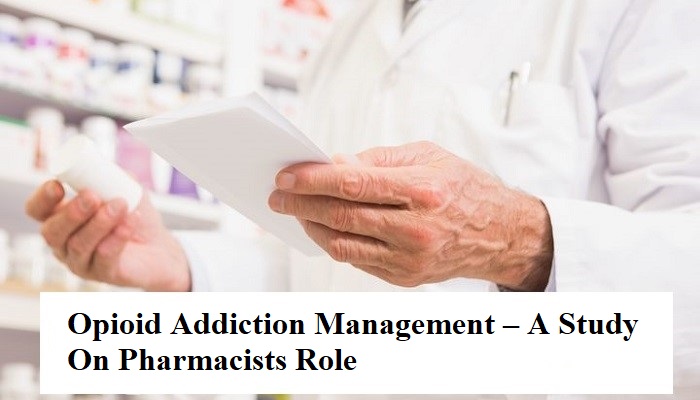Pharmacists in the times that we are in happen to play a very critical role considering the magnitude of drugs and their respective outcomes. There are drugs that can as well be pretty addictive like the ones having opioids and therefore it is significant to observe the role of pharmacists in dealing with them as they are the point of contact for a patient.
A groundbreaking study titled “The Role of Pharmacists in Addiction Management of Opioids” by Pallav Dave, a regulatory compliance analyst based in Kentucky, has shed light on the critical role that pharmacists play in addressing the opioid crisis. The paper explores various aspects of pharmacists’ involvement in managing opioid addiction, emphasizing prevention, screening, education, naloxone distribution, counseling, and referral to treatment resources.
Key Findings and Impact
The study provides a comprehensive overview of the current state of the opioid crisis in the United States, backed by recent data on prevalence and opioid-related deaths. According to the 2022 National Survey on Drug Use and Health, 8.9 million people aged 12 and older misused opioids, with 6.1 million diagnosed with an opioid use disorder. The alarming increase in opioid overdose deaths, which reached approximately 70,000 in 2020, underscores the urgent need for effective addiction management strategies.
Pharmacists, due to their unique position in the healthcare system, are ideally suited to play a significant role in opioid addiction management. The study highlights several key areas where pharmacists can make a difference:
Prevention: Pharmacists can utilize models like SBIRT (Screening, Brief Intervention, and Referral to Treatment) to screen patients for opioid use disorder (OUD), initiate discussions about opioid use, and provide early interventions.
Education: Education-based interventions by pharmacists have shown positive outcomes in preventing opioid misuse and abuse. Pharmacists are well-placed to educate patients and healthcare providers about the risks of opioid misuse and the importance of safe opioid use.
Naloxone Distribution: Pharmacists play a crucial role in distributing naloxone, a life-saving medication that can reverse opioid overdoses. Community pharmacies serve as accessible points for naloxone distribution, significantly contributing to overdose prevention efforts.
DOWNLOAD THE STUDY HERE
Medication-Assisted Treatment (MAT): Pharmacists can support MAT programs by dispensing FDA-approved medications like methadone, naltrexone, and buprenorphine, which are proven to be effective in treating opioid addiction and reducing fatal overdoses.
Counseling and Referral: Pharmacists can provide counseling on the risks of opioid misuse, safe storage, and disposal of opioids. They can also refer patients to addiction treatment resources and support adherence to treatment programs.
The misuse of opioid through a medication is a worry that can indeed to an extent be curtailed says the study with the pharmacists bent and knowledge towards doing so.
The study underscores the potential of pharmacists to transform opioid addiction management through comprehensive and interdisciplinary approaches. By leveraging their expertise in medication safety and management, pharmacists can significantly reduce the incidence of opioid misuse and improve patient outcomes.
Author Information
Pallav Dave is a regulatory compliance analyst with extensive experience in the pharmaceutical industry. Based in Kentucky, Pallav specializes in ensuring compliance with healthcare regulations and enhancing medication safety practices. With a deep commitment to public health, Pallav has conducted extensive research on opioid addiction management, focusing on pharmacists’ pivotal role in combating the opioid crisis. Pallav Dave continues to contribute to advancements in regulatory compliance and addiction management.



















